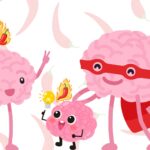In a world where pharmaceuticals often take center stage in the treatment of mental health conditions, there’s a growing body of evidence suggesting that a simple, natural activity might be just as effective, if not more so, in alleviating depression. This activity is running, and it offers a refreshing alternative to medication for those seeking relief from the burden of depression.
The Science of Depression
Depression is a complex mental health disorder characterized by persistent sadness, loss of interest in activities, and a range of physical and emotional symptoms. It’s often attributed to chemical imbalances in the brain, specifically involving neurotransmitters like serotonin, norepinephrine, and dopamine. Traditional treatment approaches often involve prescription medications, such as selective serotonin reuptake inhibitors (SSRIs) or serotonin-norepinephrine reuptake inhibitors (SNRIs), to regulate these neurotransmitters.
The Power of Running
Running, though, presents a different approach to tackling depression. Here’s how it can make a significant impact:
- Neurotransmitter Regulation: Exercise, particularly aerobic activities like running, prompts the brain to release endorphins, which are natural mood elevators. It also enhances the production of serotonin, helping to restore chemical balance in the brain. In essence, running acts as a natural antidepressant.
- Stress Reduction: Depression often coexists with high levels of stress. Running is an effective stress reliever, reducing the production of stress hormones like cortisol while promoting relaxation through the release of calming neurochemicals.
- Improved Sleep: Many individuals with depression struggle with sleep disturbances. Regular running can enhance sleep quality by regulating sleep patterns and promoting restorative rest.
- Enhanced Self-esteem: Depression often leads to low self-esteem and negative self-image. Achieving running goals, even small ones, can boost self-esteem and provide a sense of accomplishment.
- Social Interaction: Joining running clubs or participating in group runs can combat social isolation, a common aspect of depression. Connecting with others who share similar interests fosters a sense of belonging.
- Mind-Body Connection: Running requires mindfulness and presence, which can help individuals better manage their depressive thoughts and emotions.
The Role of Medication
While running offers promising benefits in the battle against depression, it’s essential to recognize that medication may still be necessary for some individuals, especially those with severe or treatment-resistant depression. Medications can provide quick relief, and they may be part of a comprehensive treatment plan that includes therapy and lifestyle changes.
The Ideal Approach
The ideal approach to managing depression may be a combination of both running and medication. This personalized approach allows individuals to reap the benefits of exercise while addressing the immediate chemical imbalances in the brain through medication. Under the guidance of a mental health professional, individuals can find the right balance that works for them.
Running, with its myriad physical and psychological benefits, stands as a formidable contender in the battle against depression. While medication has its place, it’s essential to explore the power of exercise as a natural remedy for depression. Whether it’s a leisurely jog in the park or training for a marathon, running offers hope and healing for those seeking an alternative path to recovery from depression. Always consult with a healthcare provider before making significant changes to your treatment plan to ensure your mental health needs are being met safely and effectively.















